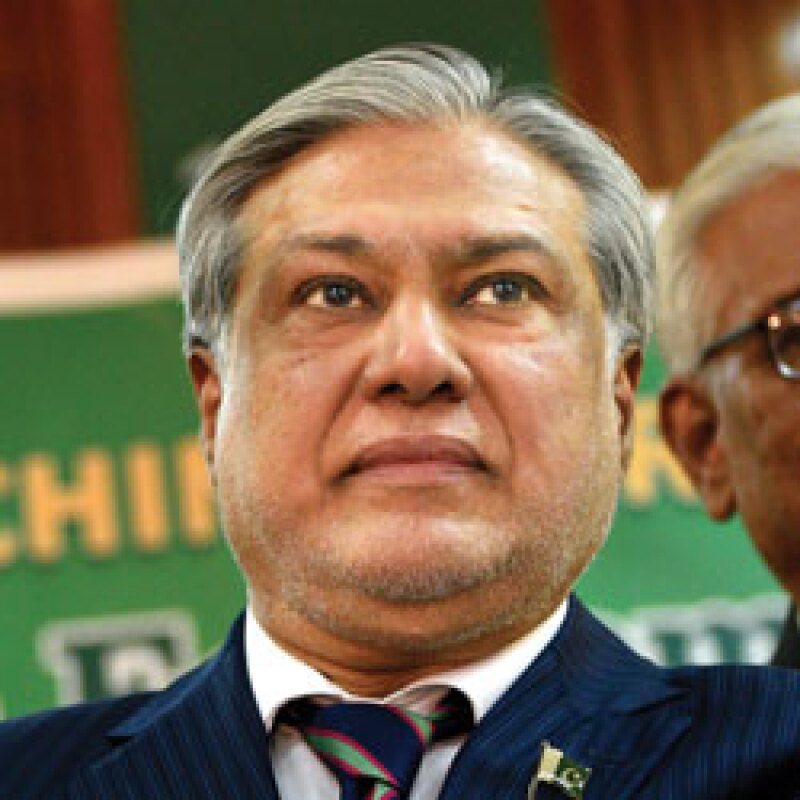
Genial — but occasionally piercingly sharp tongued — Ishaq Dar’s more than three years at the helm of Pakistan’s finance ministry can be considered an unalloyed success. Not because the South Asian economy’s finances are in a perfect state — or likely ever will be. Or because it is suddenly clear to the wider world that this highly populated nation is an ideal place for corporates and institutional investors to put their money to work.
Dar’s greatest success in a way has been to keep Pakistan off the front pages. During his tenure there has been no full-blown economic or financial crisis or any desperate entreaties to the International Monetary Fund for a bailout. The IMF tips the economy to grow by 4.5% in 2016 and 4.7% in 2017 after expanding by 4.2% in 2015, itself the highest rate of growth since the global financial crisis.
What has gone right? A concerted push to boost tax revenues has certainly helped: data from the Federal Board of Revenue show that the nation’s tax take increased 16.9% year-on-year in the last full fiscal year to end-March 2016.
Inflation is set to come in at 3.3% in the full year 2016, the IMF says, with the current account deficit steady at a shade over 1%.
Another healthy metric is the state of the country’s foreign exchange reserves, which bottomed out at around $7bn in mid-2014. They have been on the rise ever since helped by financial aid from the IMF. Pakistan’s total stock of liquid foreign exchange reserves hit $23.04bn on August 26, according to data from the State Bank of Pakistan, an all-time high. Through it all, Dar has kept a steady hand on the tiller like the politician he is. His standing in Islamabad was underscored in May 2016 when Nawaz Sharif flew to London to undergo open heart surgery. Dar was chosen to stand in for the premier during his absence. His reputation was further enhanced in June when Pakistan was readmitted to MSCI’s Emerging Markets Index having been dropped from it in 2008.
Of course, in Pakistan bad times always seem to be just around the corner. The resource-scarce economy has benefited — as has its giant neighbour and rival India — from low global oil prices. Terror-related attacks remain an ever-present threat, while growth rates, despite inching up in recent years, should, for an emerging market with ample non-energy resources, be far higher. But there is a feeling that Pakistan is now on the right path. Its finances are in better — if not yet great — shape, inflation and the current account deficit are under control, China’s vast One Belt One Road project should bring riches from both east and west and the nation now has sufficient financial reserves to survive crises.

